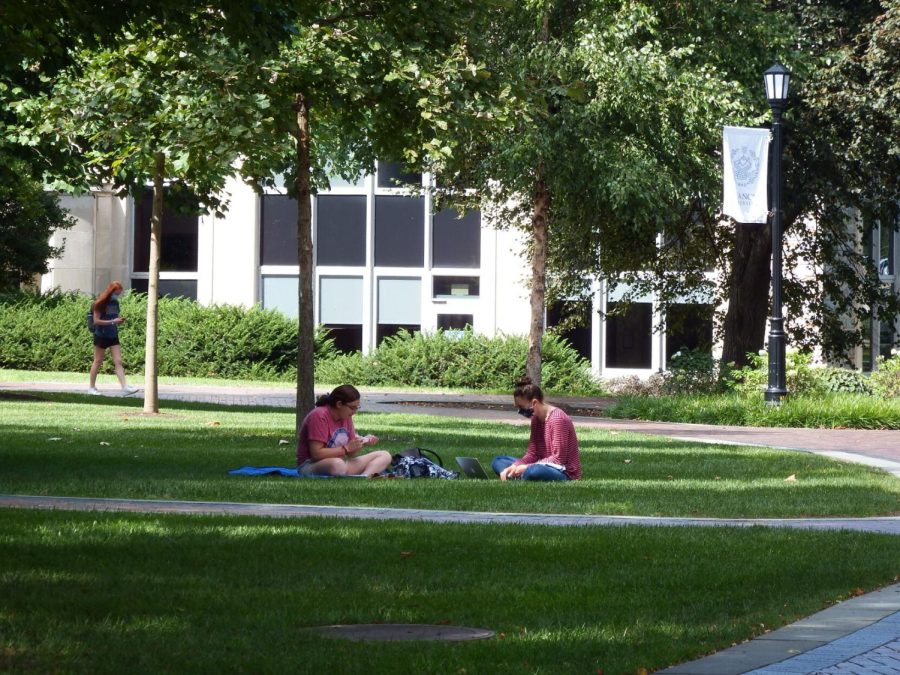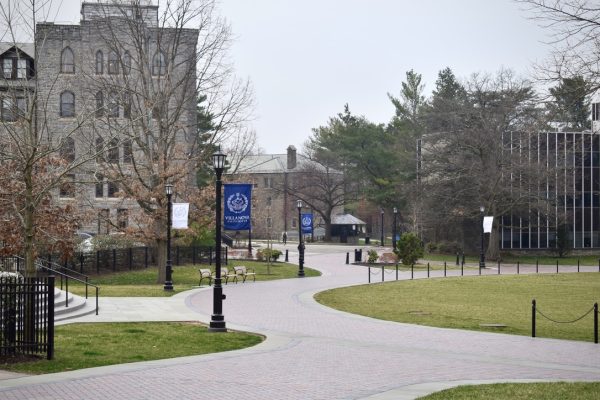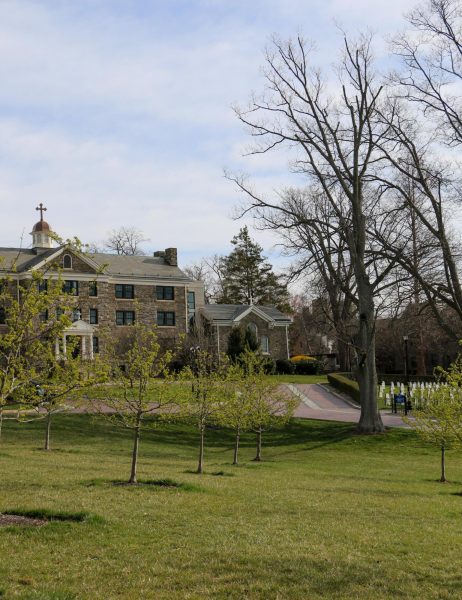Villanova Needs to Take Student Mental Health Seriously
November 19, 2020
There is absolutely no doubt that this has been a remarkably stressful semester. Between the uncertainty of the amount of time we have on campus, the presidential election, tons of school work and the general anxiety associated with the fear of living in a global pandemic, we have all had to carry a lot of weight on our shoulders.
This combination of stressors has taken a mental and physical toll on students all over campus, and frankly, the University’s response has been lackluster. Granted, the school has done a wonderful job providing events, like the Friday and Saturday night fire pits, food trucks and lawn games to make campus feel more lively and comfortable. However, the sheer lack of focus on student’s mental health has been incredibly disappointing.
Usually, students are given a week long fall break in the middle of the semester to go home, recharge and not have to think about classes for a short while. However, in efforts to maintain low numbers of COVID-19 cases on campus, students only received one day off for Labor Day, at the very beginning of the semester.
While it is understandable that the administration would want to limit the amount of travel to and from campus, this is simply not enough of a break for students. Unfortunately, this has possibly been one of the busiest semesters yet, with professors assigning more and more work to ensure that distance learning lives up to the in-person classes they are so accustomed to teaching. College is usually stressful, but with more and more work needing to be done, there is such little time to make sure you are taking care of yourself, and that simply is not okay.
Villanova owes it to its students to ensure that they are academically successful while simultaneously guaranteeing that students are getting what they need to stay healthy, both mentally and physically. The schedule for the Spring 2021 semester looks almost identical to the schedule for the Fall 2020 semester. The administration seems to think that this mental and physical exhaustion can be solved by a two month winter-break, but it really cannot. This burnout can only be prevented next semester if the University simply explores its options.
There are a number of possibilities for the University to ensure that students are getting the rest and relaxation they need to succeed.
First, the University could institute a policy where teachers are required to give at least three classes off throughout the course of the semester to help students balance their course load. Second, the University could follow suit of schools such as Penn State, who are giving the entire campus one mental health day a month, in the middle of the week, to make up for a lost spring break. Finally, the University could consider repeating the Spring 2020 semester grading policy and give students the opportunity to choose a grade of satisfactory/unsatisfactory in more classes without penalty. All of these options are COVID-19 friendly and would do wonders for the mental health of students and faculty.
At the end of the day, a two month winter-break is not going to prevent the burnout that both students and faculty have experienced this semester. If the University wants to help students and faculty perform at their best, it should be exploring options to support mental health throughout the Spring 2021 semester and not repeat the exhaustive disaster that was this past semester.






